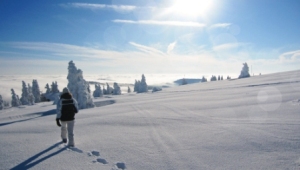Cold weather alerts are issued by the Met Office when the winter weather is most likely to significantly impact people’s health. The Met Office’s cold weather alerts are a way of warning about cold weather conditions in advance – so you can take extra precautions to keep safe and well.
Make sure you’re prepared with these simple steps
1. Keep an eye on the weather forecast. It’s good to know what to expect so you can plan ahead.
2. If bad weather is forecast, make sure you have everything you need. Order any repeat prescriptions in plenty of time and check you’ve got enough medication. Stock up on food to keep in the cupboards or freezer in case the weather makes it harder to leave the house.
3. Take extra care if the ground is slippery. Wear shoes with good grip and consider keeping salt and sand mixture handy to grit paths. You could always ask your neighbours for help to clear paths or driveways clear in bad weather – the vast majority of people are more than happy to help.
4. Try to avoid driving in bad weather if at all possible, and make sure you follow advice on driving conditions near you. If you do need to go out, make sure you keep blankets, some snacks, water and a shovel in the car in case you get stuck. Make sure these are easy for you to access – supplies aren’t much use if they are in the boot and you can’t get to them!
5. Cold weather can sometimes result in power cuts. Have a torch at home in case of a power cut (and don’t forget to check the batteries!) It’s also worth making sure any mobile phones, laptops or tablets are fully charged. You should report a power cut by calling 105.
For more information about keeping well in the Winter months, view our Warm and Well guide.


